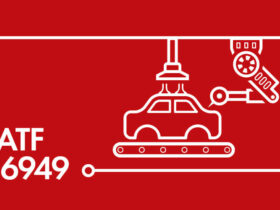Discussions about the nuts and bolts of hard money lending normally include the fact that private lenders do not check borrower credit reports before approving loans. Private lenders care less about a borrower’s credit history and score and more about the value of the assets being offered as collateral. But what about reporting loans?
Lenders might not check credit reports when making approval decisions, but do they report loans and payments to the three major credit bureaus? In short, no. While there may be exceptions to the rule, most hard money loans are never reported. A traditional lender could run a credit report on a prospective customer and never find that the customer has an outstanding hard money loan.
3 Key Reasons for Not Reporting
A traditional lender needs to know everything about a borrower’s credit history and debt load. So not finding a hard money loan on a borrower’s credit report could skew a lender’s decision. But there are other ways lenders can discover such loans.
As for hard money lenders themselves, there are three key reasons they don’t normally report their loans:
1. They Aren’t Required To
Reporting to the three major credit bureaus is completely voluntary. No creditor is required to do so. Most do because they understand the quid pro quo nature of credit reports. But hard money lenders are different. They are private lenders that tend to work outside the rules and standards of traditional financing. They are not doing anything illegal; they are just doing things differently.
2. Most of Their Loans Are Commercial
Next, nearly all hard money and bridge loans are made for commercial purposes. Rare is the hard money lender willing to loan for consumer purposes. This makes an enormous difference.
Actium Lending is a hard money lender based in Salt Lake City, Utah. They lend primarily to real estate investors looking to acquire new properties. Such investments are not considered consumer activity in the financial services sector. They are business activities. On the other hand, the credit bureaus focus on the consumer side of things.
3. Loans Are Short Term
Finally, private hard money and bridge loans are short term loans. In fact, they are extremely short. The average term for a hard money loan is 6-12 months. Most lenders will not offer terms beyond 24 months except under extremely unique circumstances.
The short-term nature of hard money makes reporting the loans more trouble than it is worth. Lenders simply do not see any value in reporting them, especially since they don’t look at credit reports when making approval decisions. Reporting doesn’t help them in any way.
Loans and Public Records
The fact that hard money and bridge loans do not show up on credit reports doesn’t mean they are completely hidden from view. They show up in certain types of public records, making them easy to find to anyone who knows where to look.
For example, a conventional lender is required to run a background check and asset search on all new applicants. Both make use of public records that are found easily online.
Consider a typical hard money loan to cover a real estate transaction. Both the trust deed and sale of the property are recorded by the county clerk. The records are freely accessible to anyone. Therefore, a traditional lender running an asset search on a prospective borrower would find them.
Hard money and bridge loans made by private lenders do not show upon credit reports. Now you know why. But they do show up in other public records, so borrowers should be aware.











